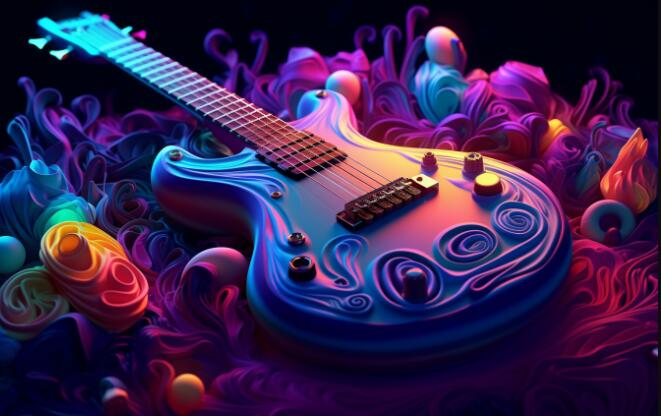With the rapid development of artificial intelligence technology, AI-generated music works are pouring into major music platforms. The Deezer platform recently disclosed that more than 10,000 AI music is uploaded every day, accounting for 10% of its average daily new music volume. In order to cope with this new trend, Deezer is actively developing AI music detection tools to identify and mark the content of these AI creations, maintain the healthy development of the platform's music ecosystem, and protect the rights and interests of music creators.
According to the latest disclosure of the Deezer platform, more than 10,000 music works completely generated by artificial intelligence are now uploaded to its platform every day. In response, Deezer is developing a suite of AI music detection and marking tools designed to better identify the content of these AI creations.
Deezer, the Paris-based music streaming service, recently released a formal statement revealing the latest advances in its AI music detection tools. The tool is currently able to identify music generated through mainstream AI creation tools such as Suno and Udio, and will also have the ability to detect other generative models in the future, just obtain relevant data examples. More notably, Deezer said it is developing an AI-generated content detection system that does not require a specific data set to accommodate the emerging AI music creation tools in the future.

According to Deezer's description, AI music works currently uploaded to its platform every day account for about 10% of the average daily content delivery. Although Deezer's user base is smaller than Spotify and Apple Music, there are still about 100,000 new music available every day. According to Luminate's statistics, in 2024, the average daily recording of digital music service platforms reached 99,000, a decrease of 4.4% from 2023. Meanwhile, Spotify claims to have more than 100 million musical works on its official website, while Deezer proudly says its library has more than 120 million.
However, Deezer also noticed that most of these AI-generated music works are not played by users, and this trend may not only dilute the quality of the music catalog, but also trigger some fraudulent activities. In response, Deezer executive Alexis Lanternier said that although generative AI has the potential to have a positive impact on music creation and consumption, its application must be cautious to ensure that the rights and income of artists and songwriters are protected. Therefore, Deezer plans to exclude content generated entirely by AI in both algorithms and editorial recommendations.
Looking ahead, with the increasing popularity of AI music creation, how to effectively distinguish human creation from AI works will become a challenge that major streaming media platforms must face. In this regard, Deezer's move may provide the industry with new ideas. How to find a balance between protecting creative rights and promoting technological innovation will be the focus of attention in the future.
The development of Deezer's AI music detection tool reflects the active exploration of streaming media platforms in responding to new challenges in music creation in the AI era. This is not only related to the health of the platform's music ecosystem, but also to the protection of the rights and interests of music creators. Future development is worthy of continuous attention.